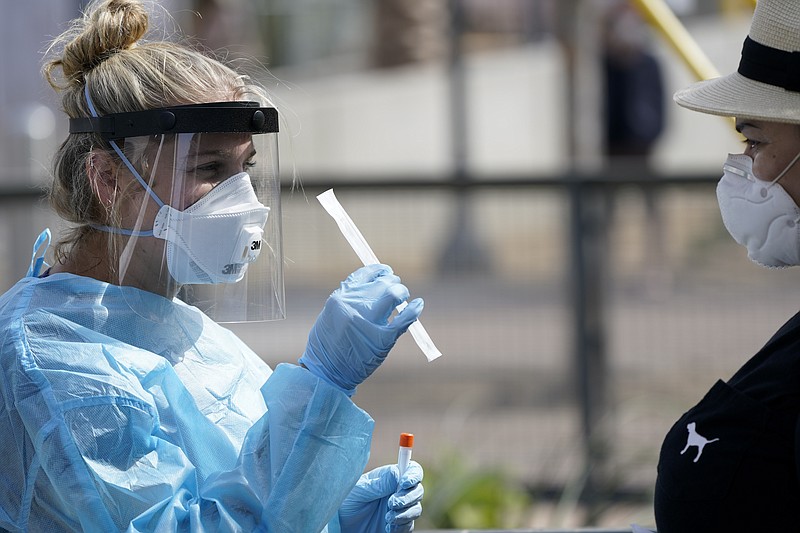WASHINGTON (AP) - A federal official said Tuesday the government plans to ship rapid coronavirus tests to assisted living facilities, moving to fill a testing gap for older adults who don't need the constant attention of a nursing home.
Health and Human Services Assistant Secretary for Health Adm. Brett Giroir said assisted living facilities will be followed by senior day care centers and home health agencies in getting the tests.
The tests will come from a supply of 150 million ordered from test maker Abbott Laboratories. Abbott's rapid test, the size of a credit card, is the first that doesn't require specialty computer equipment to process. It delivers results in about 15 minutes and is priced at $5, significantly lower than similar older tests.
Until now, the government's effort to improve COVID-19 testing for vulnerable older adults has been focused on nursing homes, which are overseen by Medicare. Assisted living facilities don't provide skilled nursing care and are outside of Medicare's purview. Nursing homes have already been receiving another kind of fast test, from different manufacturers.
In an interview, Giroir said the government had been planning to expand rapid testing beyond nursing homes, and the advent of the new Abbott test now makes that possible.
"The distribution plan will make sure there are enough tests in the system so that these individuals can get tested roughly along the same lines as (people in) the nursing homes," Giroir said. "We are expanding from the highest risk to the next risk."
The nursing home and assisted living industry, which has complained about being overlooked by the federal government, welcomed the development.
"Assisted living providers have not received federal support during this pandemic, and this is a positive step in the right direction," said a statement from the industry group American Health Care Association/National Center for Assisted Living. The group said the questions about resupplying tests will have to be addressed.
Giroir said he expects tests to start going out in two to three weeks. The Defense Department will be in charge of getting the tests to more than 20,000 assisted living facilities.
It's part of a larger effort to send tens of millions of tests to states, where they can be used to help safely reopen schools, he said.
Long-term care facilities, including nursing homes and assisted living, account for a sliver of the U.S. population but more than 40% of the deaths from COVID-19.
The issue is politically sensitive for President Donald Trump, who is facing disapproval of his administration's handling of the pandemic while trying to hang on to support from older voters in his bid for reelection.
The nursing home industry and advocates for the elderly say the government's response has been disjointed, and that Washington has been slow to guarantee that nursing homes have access to needed testing and supplies of masks, gowns, and other protective gear.
Giroir said roughly 800,000-900,000 people are in assisted living facilities, while another 1 million seniors are served by adult day care centers. These centers provide daytime activities for older people still living at home. About 1.5 million people work in home health care.
___
Associated Press writer Matthew Perrone contributed to this report.
